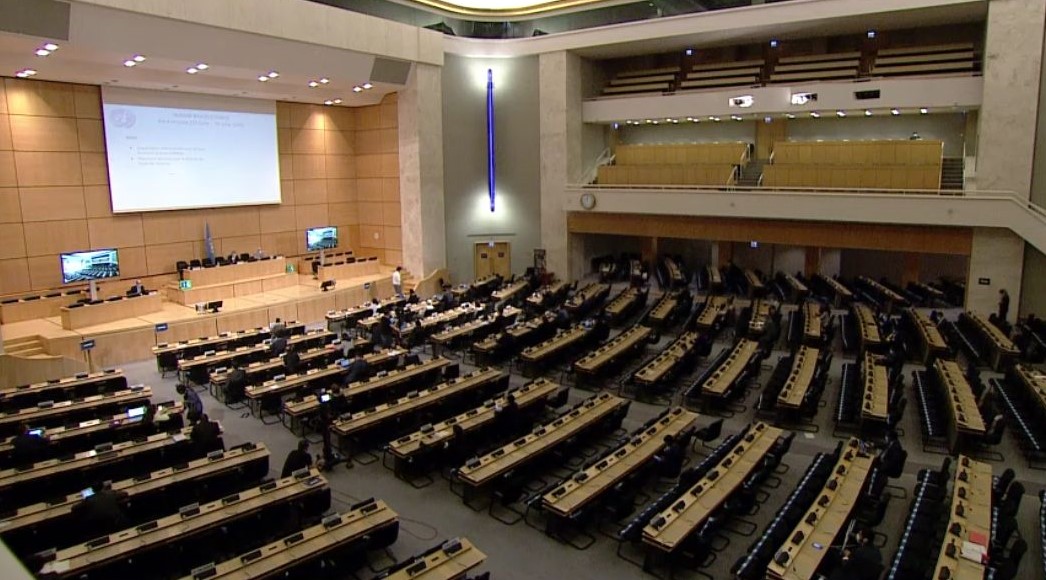
Jul 15, 2020 | Incidencia
Hoy, la CIJ hizo la siguiente declaración oral en el diálogo Interactivo sobre el Informe de la Alta Comisionada para los Derechos Humanos respecto de Venezuela.
Señora presidenta,
La Comisión Internacional de Juristas (CIJ) agradece el informe de la Alta Comisionada para los Derechos Humanos sobre la situación en Venezuela en seguimiento a la Resolución 42/25. Sin embargo, la Comisión lamenta que el reporte no haya sido publicado con suficiente anticipación a este Diálogo Interactivo, para permitir un análisis y una respuesta detallada.
El informe señala una amplia gama de violaciones a los derechos civiles, económicos, políticos, culturales y sociales.
La CIJ ha documentado durante años la ausencia de independencia judicial en Venezuela, así como la ausencia de rendición de cuentas en el ámbito nacional. En el Arco Minero del Orinoco, hemos observado numerosos casos de presuntas desapariciones forzadas, trata de personas, amenazas a defensores de derechos humanos, y serios abusos a los derechos de los pueblos indígenas.
La Comisión desea preguntarle a la Alta Comisionada, si puede explicar los obstáculos arraigados en el sistema judicial venezolano que evitan la efectiva rendición de cuentas por graves violaciones a los derechos humanos, y también si puede explicar los abusos cometidos contra los pueblos indígenas en el Arco Minero.
La CIJ espera con interés la discusión y la acción en torno al informe de la Misión Internacional Independiente de Determinación de los Hechos en el periodo de sesiones No. 45 del Consejo, y urge al Consejo a estar preparado para extender, y ampliar el alcance, del mandato de la Misión en ese momento.
Gracias.
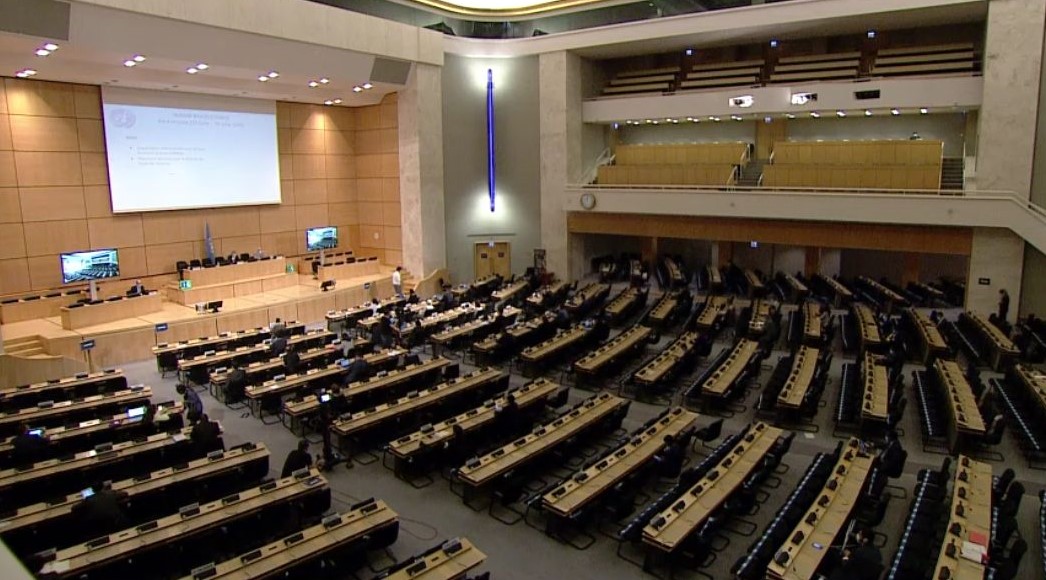
Jul 15, 2020 | Advocacy, Non-legal submissions
The ICJ today highlighted the lack of judicial independence and other obstacles to access to justice for human rights violations in Venezuela, at the UN Human Rights Council.
The statement, delivered in an interactive dialogue on the relevant report of the High Commissioner for Human Rights, read as follows:
“Madame President,
The International Commission of Jurists (ICJ) welcomes the report of the High Commissioner for Human Rights’ on the situation in Venezuela pursuant to resolution 42/25. The ICJ regrets however that the report was not published sufficiently in advance of the Interactive Dialogue to allow for detailed analysis and response.
The report points to a wide range of violations of civil, cultural, economic, political, and social rights in the country.
The ICJ has documented over many years the lack of judicial independence and the absence of domestic accountability for human rights violations in Venezuela. In the Arco Minero of the Orinoco, we have seen numerous alleged cases of enforced disappearances, human trafficking, threats to human rights defenders, and serious abuses of the rights of indigenous peoples, especially indigenous women and children.
The ICJ would like to ask the High Commissioner to elaborate on the long-entrenched obstacles to accountability for human rights violations in the Venezuelan justice system, and on the abuses against indigenous peoples in the Arco Minero.
The ICJ also looks forward to the discussion of and action on the Independent International Fact-Finding Mission’s report at the 45th session of the Council in September, and urges the Council to stand ready to extend the mandate, and to enlarge the scope, of the Fact-Finding Mission at that time.
Thank you.”
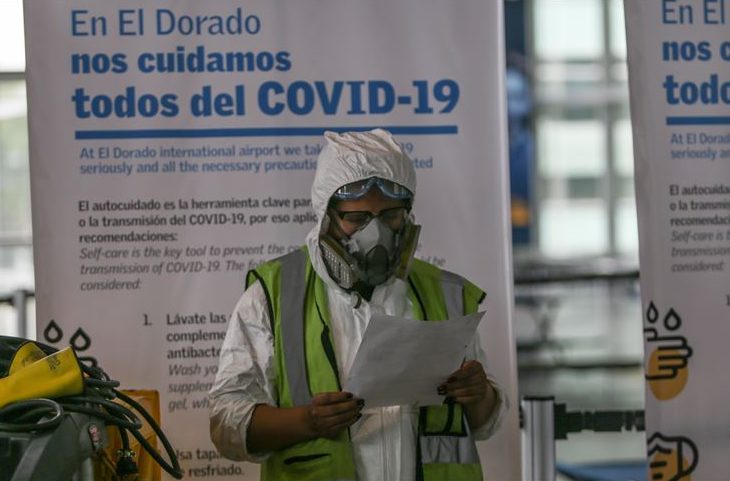
May 6, 2020 | Comunicados de prensa, Noticias
La Comisión Internacional de Juristas apoyó la realización de una serie de conversatorios online acerca de los desafíos que enfrentan los sistemas de justicia latinoamericanos en el marco de la emergencia generada por la pandemia.
Estos conversatorios abordaron temas diversos, como los servicios esenciales de justicia, el impacto del teletrabajo en la judicatura, la innovación en la justicia en tiempos de emergencia, la búsqueda de las personas desaparecidas, la situación de personas migrantes y el uso del litigio estratégico como herramienta de defensa de derechos fundamentales.
Esta iniciativa fue organizada por un grupo de mujeres de América Latina que trabajan en temas de justicia en la región, y fue apoyada por la Fundación para el Debido Proceso Legal (DPLF), la Fundación Construir, la Fundación Tribuna Constitucional, el Observatorio de Derechos y Justicia, y la Fundación para la Justicia y el Estado Democrático del Derecho.
Los videos de las sesiones que se realizaron están disponibles en español en los siguientes enlaces:
Conversatorio 1: Servicios esenciales de justicia en tiempos de emergencia
https://www.youtube.com/watch?v=dEW-GJ9J0Po
Conversatorio 2: Teletrabajo y la Judicatura: Juezas en la primera línea de la justicia
https://www.youtube.com/watch?v=pn7h41pGfp8&feature=youtu.be
Conversatorio 3: Innovando en la justicia en tiempos de emergencia
https://www.youtube.com/watch?v=yZ-2y9Ir_RE&feature=youtu.be
Conversatorio 4: La búsqueda de personas desaparecidas
https://www.youtube.com/watch?v=rfWj_gjxJbs&feature=youtu.be
Conversatorio 5: La protección de las personas migrantes
https://www.youtube.com/watch?v=6kDOjklinnw&feature=youtu.be
Conversatorio 6: ¿Como puede el litigio estratégico protegernos frente a los efectos de la pandemia?
https://www.youtube.com/watch?v=IlwcZqq2CJ4&feature=youtu.be
Conversatorio 7: Experiencias nacionales de litigio estratégico frente al COVID-19
https://www.youtube.com/watch?v=Qd-J5pcEX7I&feature=youtu.be
Texto completo, en PDF: Videos-Sistemas-de-Justice-Press-Release-2020-SPA
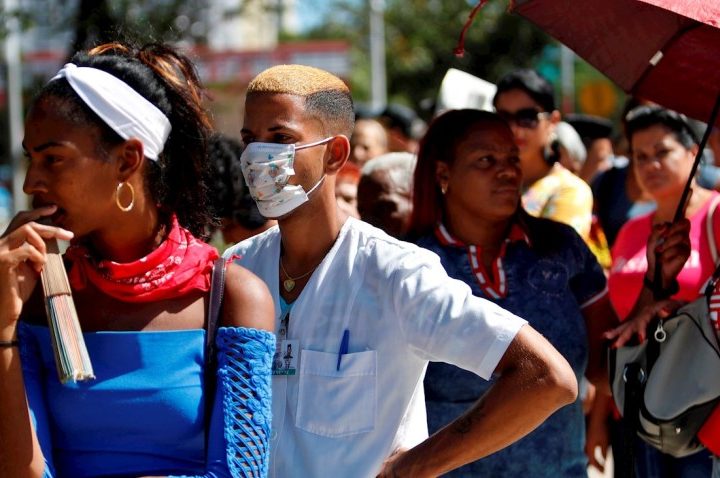
Apr 29, 2020 | Advocacy, News, Op-eds
An opinion piece by Carolina Villadiego Burbano, ICJ Legal and Policy Adviser for Latin America.
Several Latin American governments have adopted exceptional emergency measures to face the COVID-19 health crisis. The measures, motivated by policies with the objctive of urgently protecting people’s health, have been accompanied by restrictions to personal freedoms (i.e. quarantines, isolations).
Judiciaries have also adopted specific measures too to protect the right to health of persons involved in proceedings while providing services for guaranteeing access to justice during the emergency. They have reduced physical operations; adopted social distancing measures in courts; postponed proceedings; authorized remote work for judges and administrative officers; incorporated urgent mechanisms to guarantee fundamental rights and allowed the use of technology.
Judiciaries fulfil different roles under international humans rights law and, as a recent ICJ briefing note recalls, these roles remain as or even more important during the pandemic. Those roles include guaranteeing individual rights, including the right to a fair trial, freedom from arbitrary detention, freedom from torture and other ill-treatment and the right to an effective remedy. In addition, the responsibility of the judiciary is to securing the rule of law more generally by reviewing the government’s decisions during the emergency.
This blog illustrates measures adopted by South American judiciaries and some preliminary and personal reflections on some of the factors to be considered in assessing their proportionality and effectiveness.
Specific measures to protect health while guaranteeing access to justice
Brazil’s National Council of Justice has recommended to judges several measures that could reduce epidemiological risks, such as reassessing pre-trial detentions. This review could include revoking pretrial detentions when detainees were pregnant women or were under pretrial detention for more than 90 days.
Chile’s Supreme Court has established criteria for judges and other personnel to work remotely, and for holding specific hearings by videoconference with previous coordination with the parties and by ensuring due process guarantees. Also, instructions have been given to prioritize cases linked to the sanitary emergency and related to the protection of rights of persons in vulnerable conditions.
Colombia’s Judicial Council postponed proceedings except for urgent ones, such as those essential for the protection of fundamental rights (tutela), habeas corpus, constitutional and legal control of the emergency governmental decrees, decisions regarding persons deprived of liberty and protective measures related to domestic violence cases. The judiciary has published email addresses where urgent applications could be made electronically and allowed the use of videoconferencing and remote work for judges.
Ecuador’s Judicial Council has allowed remote working by judges, and videoconference hearings have been adopted for crimes committed in flagrante delicto. Judicial proceedings have been postponed, except for urgent cases, such as for crimes committed in flagrante delicto, domestic violence, juvenile justice and prisoners’ guarantees. The Supreme Court and the Constitutional Court has defined rules applicable to the procedures under their jurisdiction.
Peru’s Executive Council of the Judiciary postponed proceedings and established that some judges should work physically at courts on urgent proceedings, such as those related to rights of detainees, domestic violence and payment of parental support. Some remote work has also been allowed.
Other judiciaries have adopted similar measures. Provincial judiciaries from Argentina and judges from Bolivia have held hearings through videoconferences. Paraguay’s judiciary identified urgent matters for which it would provide services.
Judiciaries, right to an effective remedy and access to justice: what next?
More than one month after those judicial measures were adopted it is important to reflect on their proportionality and their effectiveness. It is also important to envision a middle-term plan to deal with the consequences of postponement of proceedings and the likely increase of judicial workload when restrictions end. I suggest three sets of issues that could be considered as a starting point for such reflection by Latin American judiciaries, civil society and international bodies and agencies:
- Effects on the protection of the right to health and on rights of judges and court personnel
- There should be a review of the measures adopted to guarantee in-person services, especially analyzing if adequate health standards have been guaranteed for all persons participating in proceedings. There has been some criticism that protective measures have been insufficient and sometimes they were only available for judges and courts’ administrative staff.
- There should be an assessment with judges and other personnel, whether the remote work complied with health-work standards. It is crucial to review the conditions of persons working remotely, in particular in relation to information technology, and if work schedules have been flexible when judges/personnel were caring for children or dependent adults.
- There should be a review as to whether there has been a disproportionate effect in the workload of female judges or other female personnel while working remotely, caring for children and performing domestic activities.
- General considerations with a human rights approach
The following questions might be considered:
- Review whether judicial proceedings continue to be accessible wherever necessary to guarantee the right to an effective remedy regarding human rights, and to otherwise ensure judicial review of the lawfulness of governmental decisions. The Inter-American Commission on Human Rights has established that “appropriate legal proceedings to ensure the full exercise of rights and freedoms” should not be suspended.
- Review whether judicial measures that guarantee the right to an effective remedy are accessible for all persons in a country, especially for those in a situation of vulnerability or risk.
- Establish priorities and policies for cases related to persons or groups in conditions of particular risk (e.g. detainees, migrants, refugees), and for persons without access to technology.
- Review if hearings held by videoconferences guaranteed parties’ rights, such as due process, right to defense, right to call and confront evidence, and right to consult confidentially with one’s lawyer.
- Assess whether the security protocols used by the remote work and videoconferencing technologies, ensure that sensitive, confidential or otherwise private information, is adequately protected.
- Adopt transparency policies and adopt public assessment of the measures adopted, so individuals can exercise control and oversight of these measures as they affect defendants, parties, lawyers and the general public.
- Medium-term plan for Judiciaries
- Judiciaries should develop a medium-term plan soon to guarantee the right to an effective remedy to address the adverse human rights effects that COVID-19 has brought and may continue to generate. The plan should be public and should consider the possible increase of workload due to postponement of proceedings and impacts on specific rights, such as health, work, water and sanitation and food. It could consider deploying teams of emergency judges to provide access to an effective remedy for these rights and the use of adaptive case management tools.
- Judiciaries should develop a strategy to ensure that cases of human rights violations that constitute crimes under international law, enforced disappearances, extrajudicial killings, torture and ill-treatment, are not indefinitely delayed, cancelled or otherwise compromised. Such impediments must not be allowed to result in impunity of perpetrators or pose obstacles to ensuring that victims receive complete information regarding the advance of their cases.
The COVID-19 pandemic has modified judiciaries’ methods of work. As they adopted specific measures to protect the health of persons as well as to provide judicial remedies, it is important to review their measures with a human rights approach. It is also critical that judiciaries themselves analyze their practices and adopt changes when necessary. The Inter-American Commission of Human Rights and the UN Special Rapporteur on the Independence of Judges and Lawyers should continue to specifically monitor these measures and report on them.
In PDF: Latin-America-Judiciaries-During-COVID-OpEd-2020-ENG
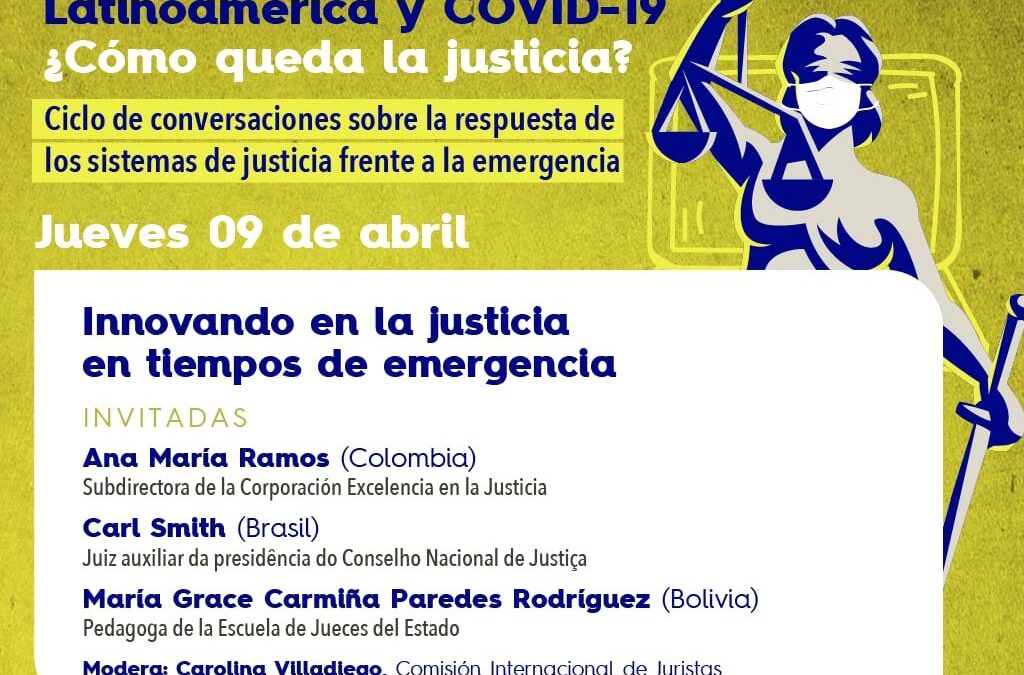
Apr 9, 2020 | Events, News
Various States in the Latin American region have adopted exceptional measures to address the pandemic and manage the health crisis. These measures impact peoples’ human rights and freedoms. A series of webinars will cover this topic. The third one takes place today.
Access to justice and the right to an effective remedy are particularly at risk. In that regard, it is worth analyzing: How are justice systems reacting to the pandemic? What is required to continue guaranteeing access to justice, especially for those people and groups most vulnerable? How does this pandemic affect the provision of services in the justice sector? How can justice systems innovate to respond to this situation?
In order to address these questions, the ICJ together with DPLF, Fundación Construir, Fundación Tribuna Constitucional, Observatorio de Derechos y Justicia, and Fundación para la Justicia y el Estado Democrático del Derecho, supports an initiative of webinars led by a group of women human rights defenders in Latin America.
The webinars will be held in Spanish and through the Zoom platform. Registrations for each webinar can be made by sending an email to info@dplf.org Registered persons will receive the zoom link where the activity can be followed.
The first three conversations are as follows:
- Essential justice services in times of emergency: Thursday 02 of April
At: 14.00 México-Central America/ 15 hours Colombia-Perú-Ecuador/ 16.00 Washington-Bolivia/ 17.00 Chile -Argentina/ 22.00 Geneva
- Working from home and being a judge: challenges for women that are judges: Tuesday 07 of April
At 14.00 México-Central America/ 15.00 Colombia-Perú-Ecuador / 16.00 Washington-Bolivia / 17.00 Chile -Argentina/ 22.00 Geneva
- Innovating in the justice system during times of emergency: Thursday 09 of April
At 14.00 México-Central America/15.00 Colombia-Perú-Ecuador/ 16.00 Washington-Bolivia/ 17.00 Chile -Argentina/ 22.00 Geneva









